Dmitri Hvorostovsky & Anna Netrebko, Royal Festival Hall, LondonThey made for an interesting couple: he, svelte and knowing, his black velvet tails and shock of silver hair suggesting he might briefly have taken leave from Twilight or some other nocturnal vampire tale; she, girlishly innocent and ripe for his attentions.
He had maturity on his side, she a completely fabulous instrument and the joy of just simply singing. But not even Dmitri Hvorostovsky and Anna Netrebko could turn an operatic pick-and-mix evening into more than the sum of its parts. From Russia with love, certainly, but how seduced were we by the gift-wrapping?
They both opted for difficult openers. Hvorostovsky chose Wolfram’s “Abendstern” (“O Star of Eve”) from Wagner’s Tannhauser and not even his famed technique could disguise the fact that this difficult legato sits on the fault-line of the voice between chest and head. And why was he smiling, no beaming, so benignly? That’s the problem with removing operatic arias from their dramatic context: suddenly it’s all about putting your best face and voice forward and making an impression for that moment only – a snap-shot, nothing more.
Netrebko arrived with Strauss’ ecstatic wedding gift to his wife Pauline – the love song “Cäcilie” - delivered in gorgeous tone and terrible German. Again the words seemed secondary to a more generalised preoccupation with making a truly grateful sound – and that she did. The evenness and creaminess of that sound throughout the vocal compass is not given to many. But then again the “cover” of the sound can and did dull the sparkle of Marguerite’s “Jewel Song” from Gounod’s Faust. Trills and roulades were somewhat occluded where they need to twinkle knowingly and I’m not sure Netrebko really understood the irony implicit in the number any more than she understood the effect of the ache in the phrasing of “Song to the Moon” from Dvorak’s Rusalka. But she sure knew that the money note was the high B natural at the close.
Hvorostovsky had his “Faust” moment, too, and if you are going to “sell” Valentin’s “Avant de quitter ces lieux” (an eleven o’clock number if ever there was one) then this is the way to do it – with burnished legato and heart-swelling climaxes. His other big party piece (and this really does sit well on its own) was Yeletsky’s Aria from Tchaikovsky’s La Pique Dame – and the long-breathed way it slipped off the vocal chords (his breath control really is second to none) was as good a reason as any for being there.
Actually, the duets were, too. Two extended scenes from Leoncavallo’s I Pagliacci and Tchaikovsky’s Eugene Onegin gave the chemistry between them a chance. Nedda and Sylvio’s close encounter was shrouded in uncertainty, the inevitable kiss furtively illicit, while the scorching final encounter between Tatyana and Onegin was full of the passion that comes too late, its still centre of regret touchingly caught by both artists.
It’s easy to overlook the orchestra and conductor on these starry showcase occasions – but Lawrence Foster and the Philharmonia Orchestra did a good job with the orchestral “grouting”, Foster bolstering up his stars and even playing hard to get when Netrebko began her now signature flirtations with Lehar’s “Meine lippen sie kussen so heiss”. Hvorostovsky’s answer was to smoulder provocatively with “Moscow Nights”. And I was thinking Twilight again.
--------------------------------------------
Anna Netrebko has crowd eating out of her handForget chalk and cheese, Anna Netrebko and Dmitri Hvorostovsky are fire and ice, she the tempestuous soprano, he the upright, occasionally rather stiff baritone. They both look as if they're preparing for a residency in Vegas, but the opera house is their home, and they make a good team. Sadly, too much of their concert kept them apart.
First there was the Philharmonia under Lawrence Foster, delivering a sequence of voiceless showpieces scattered through the programme, half an hour all told, surely too much in the context. Then there were the solo items, designed to show off each singer's range.
Hvorostovsky singing Wagner counts as a rarity, but while it was good to hear Abendstern from Tannhäuser sung with such free-flowing lyricism, there were moments when the voice seemed corseted so as to keep it from spreading. Then Netrebko sang Strauss's short song Cäcilie as a full-blown operatic aria, in the process revealing a slight edge to the voice. Only when the two at last sang together did the real action begin. A searing duet from I Pagliacci set the sparks flying, revealing their different vocal personalities: Hvorostovsky brooding, Netrebko glittering fiercely but with a deep substrate of sadness. Both have the ability to sustain a smooth singing line; if not quite as even as it once was, Hvorostovky's legato is astonishing, but she's the better actor and has more moods at her disposal. Then it was back to singing solo, Netrebko fizzing in a vocal waltz by Luigi Arditi, Hvorostovsky altogether darker as Verdi's Rigoletto. This was what we'd come to hear: passion, pathos and more than a little menace. Hvorostovsky even allowed himself the gentlest of sobs. Finally we got to Tchaikovsky, and even those of us who don't speak a word of the language could feel the extra immediacy of Russian singers on their home turf. The closing duet from Eugene Onegin might have been written for them; even their age difference (he a decade older than her) fitted the drama. A few signs of vocal wear only served to underline the characters' vulnerability. If two duets seemed rather short measure, nobody was complaining.
Of course there were encores, and once again Netrebko came out on top, irresistibly girlish and dancing barefoot in Meine Lippen, sie küssen so heiss, the big hit from Lehár's Giuditta.
She had the packed hall eating out of her hand.
------------------------------------------
Netrebko/ Hvorostovsky at the Festival Hall
It was a coincidence that the soprano Anna Netrebko and baritone Dmitri Hvorostovsky were singing at the Festival Hall just a few days after Pop Star to Opera Star launched on television. But here it sometimes seemed as though it was the two Russians who were making the reverse journey. Glitz and bling were the order of the day. A glossy programme offered us plenty of promotional candy but little fibrous information (such as the words). And the amiable Lawrence Foster conducted the Philharmonia with a fervour that sang the word “filler” in rather large letters.
But there was substance here as well. Yes, Netrebko finished the evening dancing barefoot around the orchestra (Lehár’s Meine lippen sie küssen so heiss) and Hvorostovsky, who had been smouldering so aggressively all evening that at times he threatened to self-combust, finally blew open the doors of kitsch with Moscow Nights. They had, however, both earned the right to let their hair down.
Netrebko is the more nuanced performer. Her opener, Strauss’s Cäcilie, was an odd choice. But the coos of delight she sprinkled across the Jewel Song from Faust made up for the heavy coloratura, and by the time her darkly powerful soprano had revved up to a raptly intense Dvorák’s Song to the Moon she was showing the full force of her charisma. And that was without the hoofing.
Hvorostovsky remains a performer whose technical gifts — plush tone, formidable legato — can come at the cost of theatrical engagement: numbers from Tannhäuser, Faust and Rigoletto were stylish but underinflected. Matched with Netrebko or singing in his native language, however, and it was another matter. A steamy duet from Pagliacci struck properly verismo sparks. Hvorostovsky uncorked a majestic rendition of Yeletsky’s aria from The Queen of Spades. And the two were simply sensational in the final duet from Eugene Onegin, etched with idiomatic flair and ripely dramatic conviction. I’ve never heard it sung better.
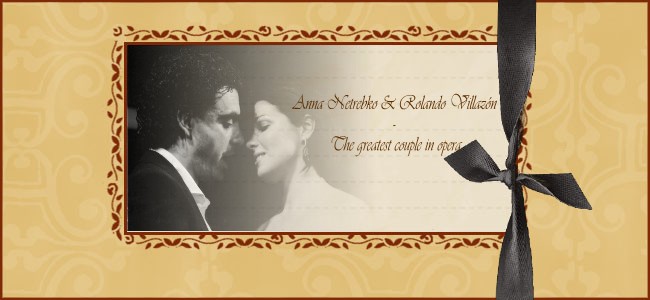

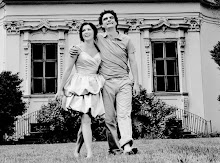
.jpg)

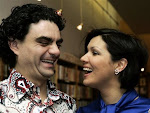

.jpg)

.jpg)


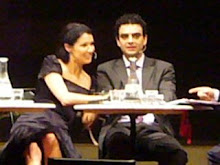.jpg)


.png)
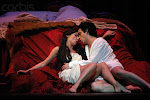


.jpg)
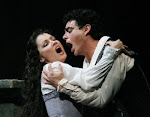.jpg)
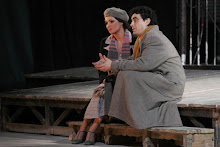.jpg)
.jpg)
.jpg)
.jpg)
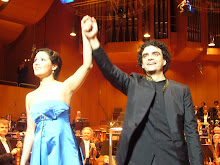.jpg)


.jpg)


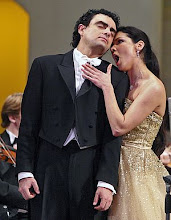.jpg)
.jpg)


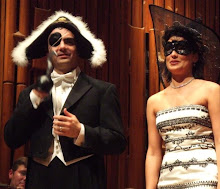


.jpg)
.jpg)

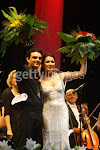
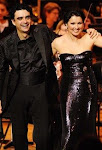.bmp)
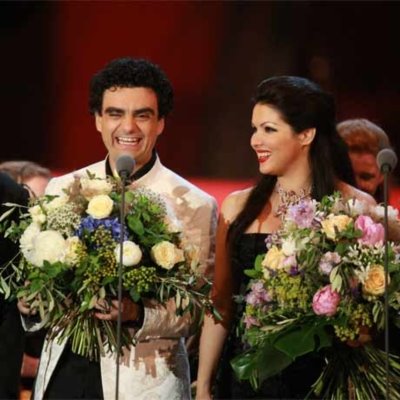
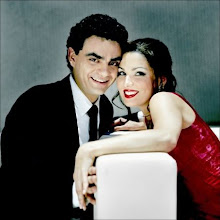
.jpg)

.jpg)




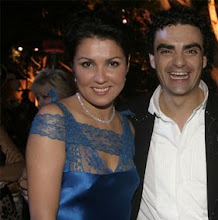+2.jpg)
.jpg)





















